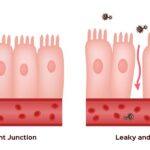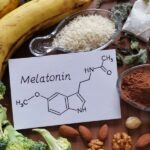Obesity is a chronic and relapsing public health problem with an extensive list of associated comorbidities. The worldwide prevalence of obesity has nearly tripled over the last five decades and continues to pose a serious threat to wider society and the wellbeing of future generations. The pathogenesis of obesity is complex but diet plays a key role in the onset and progression of the disease. The human diet has changed drastically across the globe, with an estimate that approximately 72% of the calories consumed today come from foods that were not part of our ancestral diets and are not compatible with our metabolism. Additionally, multiple nutrient-independent factors, e.g., cost, accessibility, behaviours, culture, education, work commitments, knowledge and societal set-up, influence our food choices and eating patterns. Much research has been focused on ‘what to eat’ or ‘how much to eat’ to reduce the obesity burden, but increasingly evidence indicates that ‘when to eat’ is fundamental to human metabolism. Aligning feeding patterns to the 24-h circadian clock that regulates a wide range of physiological and behavioural processes has multiple health-promoting effects with anti-obesity being a major part. This article explores the current understanding of the interactions between the body clocks, bioactive dietary components and the less appreciated role of meal timings in energy homeostasis and obesity.
–Nutrients. 2022 Dec; 14(23): 5080. Published online 2022 Nov 29. doi: 10.3390/nu14235080
—————————————–
Naturally-derived chronobiotics in chrononutrition
The circadian clock is an evolved autonomous timekeeping system that aligns body functions to the solar course, by anticipating/coordinating the required metabolic activities; such internal clock responds to several exogenous stimuli (Zeitgebers) able to synchronize the endogenous rhythm. A disrupted circadian rhythm leads to several neurodegenerative and metabolic illness such as obesity, diabetes, and psychiatric disorders.
Scope and approach
Circadian rhythm disorders have no current medical treatment, but chrononutrition has emerged as an important tool to enhance metabolic and nutritional health in sleep disorders. This review highlights the effects of meal timing, food types, nutrients and several bioactive xenobiotic compounds (chronobiotics) on circadian clocks. The potential application of diet therapies is discussed particularly to deal with certain metabolic disorders related to circadian misalignment.
Key findings and conclusions: The desynchronization of circadian rhythms negatively influences health necessitating the development of molecular modulators of circadian rhythms including food components, meal timing, or different diet types that can help correct circadian disorders attenuating the burden of chronic diseases. However, there is limited research on the chronobiotic effect of specific foods/compounds in clinical trials. Animal studies evaluating the chronobiological response, resulting from the ingestion of a particular food, are also limited; most available studies (in vitro and animal models) report the effect of a single nutrient (e.g., caffeine, palmitate, among others) which is difficult to translate to real-life situations. This review offers the perspective of a chronobiotic-based approach, identifying targets for health improvement, which are current lifestyle-associated issues.
–Trends in Food Science & Technology
Volume 95, January 2020, Pages 173-182
—————————-
Inter-relationships of the chronobiotic, melatonin, with leptin and adiponectin: implications for obesity
Obesity and its medical complications represent a significant problem throughout the world. In recent decades, mechanisms underlying the progression of obesity have been intensively examined. The involvement of both the behavioral aspects, such as calorie-rich diet, low physical activity and sleep deprivation, and the intrinsic factors, including adipose tissue deregulation, chronic inflammation, oxidative stress, and chronodisruption, has been identified. The circadian disturbances of the adipose tissue endocrine function have been correlated with obesity. Leptin and adiponectin are adipokines strongly associated with glucose and lipid metabolism and with energy balance. Their synthesis and secretion display circadian rhythms that are disturbed in the obese state. Hyperleptinemia resulting in leptin resistance, and hypo-adiponectinemia have been linked to the pathophysiology of the obesity-related disorders. A deficiency of melatonin, one of the consequences of sleep deprivation, has also been demonstrated to correlate with obesity. Melatonin is a pineal secretory product involved in numerous actions, such as regulation of internal biological clocks and energy metabolism, and it functions as an antioxidant and as an anti-inflammatory agent. There exists a substantial amount of evidence supporting the beneficial effects of melatonin supplementation on obesity and its complications. In the current review, the results of studies related to the interactions between melatonin, and both leptin and adiponectin are discussed. Despite the existence of some inconsistencies, melatonin has been found to normalize the expression and secretion patterns of both adipokines. These results support the concept of melatonin as a potential therapeutic agent for obesity and related disorders
Journal of Pineal ResearchVolume 59, Issue 3 p. 277-291












